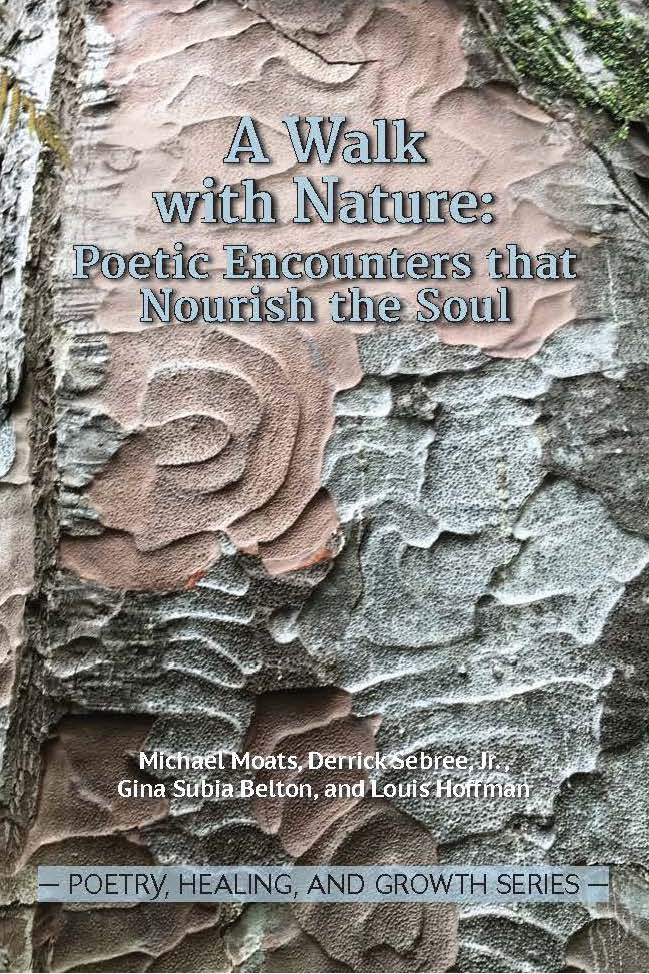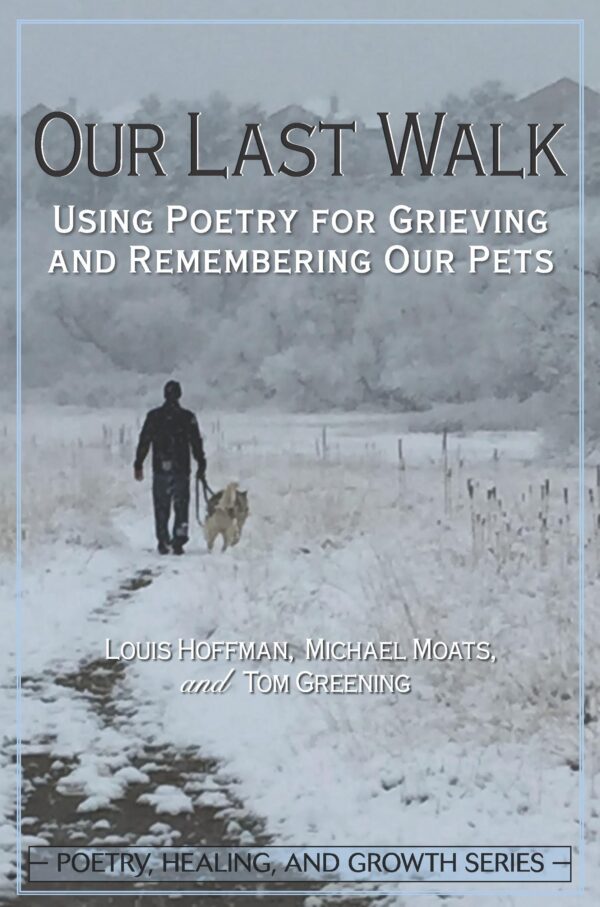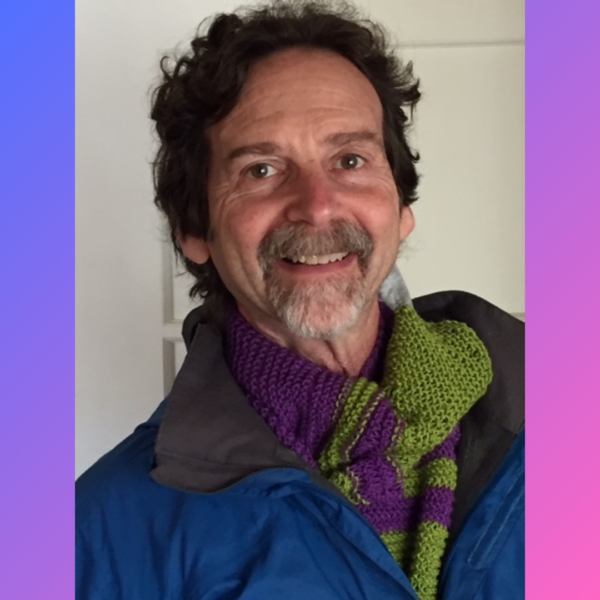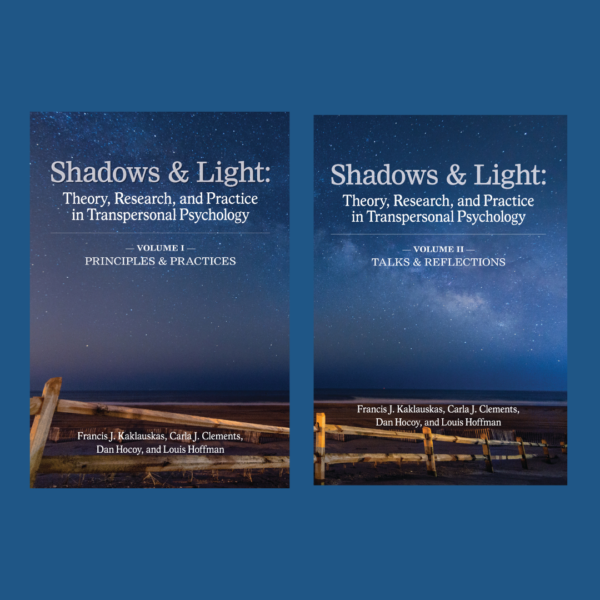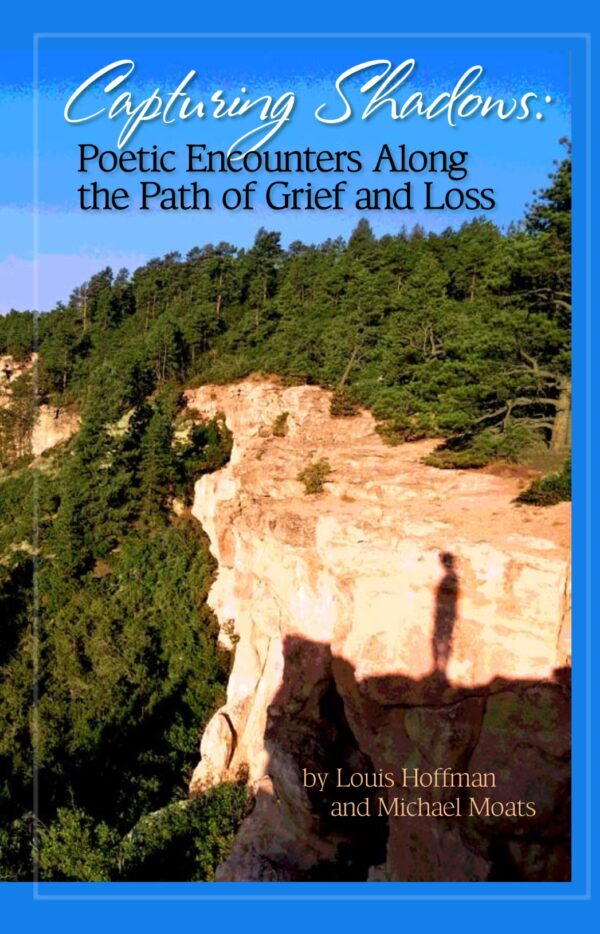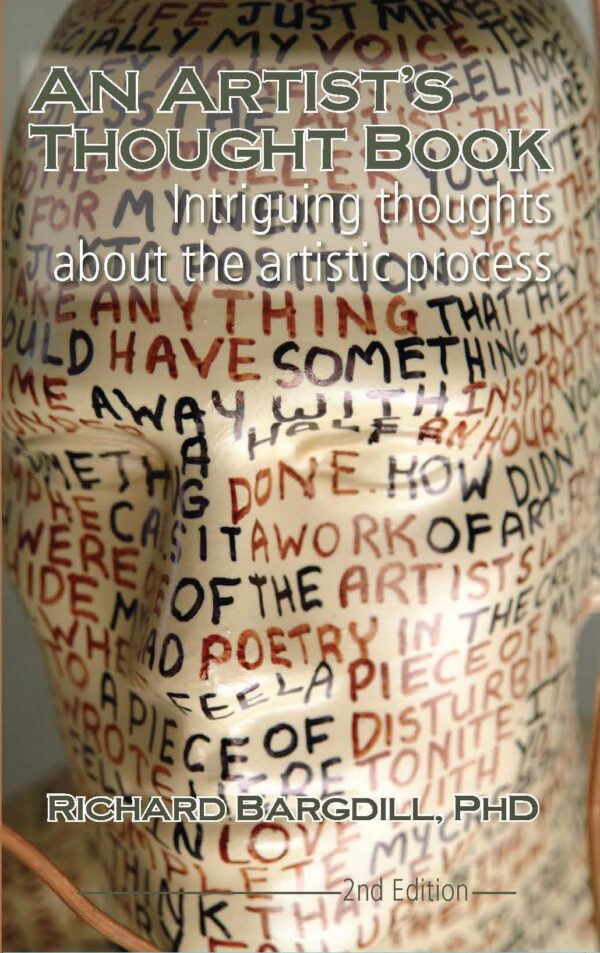Reviews
A Walk with Nature is a marvelous addition to the genre of nature poetry. As it promises in the title, it does indeed nourish the soul and, even more, links the reader with the natural world in a way that few resources do. After reading this splendid volume, I immediately went on a nature walk in search of the peak experiences I felt while diving into the nourishing poetry that is its gift to all of us. I recommend A Walk with Nature wholeheartedly to all who wish to connect and reconnect with the animating force of nature. It is truly a treasure.
Charles Garfield, PhD
Clinical Professor of Psychology for 40 years at UCSF Medical School Author of Life’s Last Gift: Giving and Receiving Peace When A Loved One Is Dying
Psychotherapists listen and help people who come to them to talk of their fears, hopes, dreams, and despair. I think of what we do as soul work. “Psyche” is a Greek word for “soul” and poetry is soulful. Here is a collection of poems chosen by psychologists who read and write poetry themselves and know when the psyche is speaking. Like music, only in words, a poem can express and in some way validate our own inarticulate feelings of being and belonging in nature and the universe.
Jean Shinoda Bolen, MD
Jungian analyst, activist, (jeanbolen.com)
Author of Goddesses in Everywoman, Close to the Bone, The Millionth Circle
While facts and figures are important for our understanding the natural world, poetry is the key that unlocks the gate and allows us to step into the living landscape of frogs, trees, stones and creeks. If language is our way of describing the world, poetry gives it life. I applaud those who conceived and compiled this book of poetry. It is another fresh breath offered to sustain this beautiful, breathing world.
Betsy Perluss, PhD
Wilderness Guide
School of Lost Borders
In reading this book you cannot help but encounter the objectivism of nature. Yes, it is beautiful. Yes, it should be explored. However, this misses the heart of what A Walk with Nature is about: an authentic relationship with nature. As an Arapahoe saying teaches, “All plants are our brothers and sisters. They talk to us and if we listen, we can hear them.” This book guides you through encounters that offer a deeper connection with nature, one grounded in awe and reverie. At the end of this journey you may just know not only nature but yourself a bit better.
Trent Claypool, PsyD, Licensed Psychologist
Director of Sport and Mental Performance
Neurofeedback Colorado Springs
Published: October 31, 2019
Pages: 220
ISBN (print): 978-1-939686-48-0
ISBN (ebook): 978-1-939686-49-7
Michael Moats, PsyD describes himself as a father, a husband, and a friend. His passion as a clinical psychologist lies in working with clients who are learning to redefine their lives and create new meaning, especially those dealing with grief and loss in its many forms (i.e., death, divorce, job loss, recent move, natural disaster, war.) Michael frequently utilizes nature and stories from his hikes, hunts, walks, skiing, and general sense of awe and intrigue in the therapeutic setting.
Raised in rural Illinois, he saw his father frequently wander through the woods with no agenda beyond experiencing whatever came. His grandmother fished with a cane pole and with the enthusiasm of a child, while his brother taught him to hunt and to better read the woods and the wind. It was Michael’s own sense of embracing the silence of nature that offered a symphony of sounds and opportunities.
Struggles in nature, insights from engagement, and the paradoxical realization of how small yet significant each person is in relation to nature has shaped how he embraces life, his perspective of relationships, and his therapeutic work with clients. He would not negate the importance of intellectual knowledge concerning nature, but he would argue that no amount of knowledge can match the experience of being in and having a relationship with nature. He believes that there are not enough days in a life to learn all that nature has to offer.
Dr. Moats recognizes that every experience creates an opportunity to learn, to grow, and to heal. And, nature is large enough to hold whatever one is carrying. However, as one grows to see the immense giving power of nature the resulting relationship also demands that one has a responsibility to return these gifts through stewardship and sharing.
He believes that it is important to see nature through the eyes of a child and care for it as a parent of that child. Read more about Dr. Moats and his other books at his author page.
*****
Derrick Sebree, Jr., PsyD is a multicultural psychologist and social justice advocate whose work focuses on the intersectionality of race, ethnicity, and our relationship with the ecological world. As a Black male professional, Derrick seeks to illuminate the relationship between ecological and social justice from a multicultural, ecopsychological perspective. He views the Earth–Human relationship as a parallel, interconnected process to the Human–Human connection, for how we view one another is a microcosm of how we view all modes of life.
Derrick has lived within the city of Detroit, where nature was not viewed as safe; instead, nature was viewed as something to avoid. Detroit has been a city rife with racial and environmental struggle. Over the years, as Derrick has worked to heal and discover elements of himself, he has turned to nature as a guide, beginning with experiences on urban farms in the inner city, to eventually kayaking on the Colorado River, and camping in the Black Canyon. Nature takes on many roles, from guide, to mentor, to nurturer. Nature fulfills all these identities for us, providing a unique experience where one can come to see themselves in nature, and nature within themselves—a reflexive process of transformation and change where one comes to develop a deeper understanding of themselves within nature. These experiences with nature have shaped Derrick’s relationship with nature, and himself, to where he now can develop a richer connection to nature as an urban, person of color.
Nature is a mirror into ourselves, casting back the deepest reaches of humanity. Reflecting pain and shadow, transforming to light and beauty.
*****
Gina Subia Belton, PhD is a thanatologist, a compassionate companion and empathic witness in her private practice at Redwood Palliative Psychology, where she focuses on cultivating her community’s capacity for living, aging, dying, and grieving well. Oriented in an ecopsychological attitude, Gina’s work and research in existential medicine is empowered by her approach characterized as “cultivating an ethic of radical hospitality” (Belton, 2017). The concept of cultivating an ethic of radical hospitality is the ecopsychological out-growth of her Indigenous, Mestizaje lineage and guides Dr. Belton in her work with clients transitioning to the end of life and supporting the beloveds who mourn them. As a professor of psychology at Saybrook University, Gina is an emerging Indigenous scholar and committed to the success of her students growing into their own scholarship and practice.
Growing up in the ‘60s and ‘70s in the midst of the confluence that was rural California, Gina played and worked in community with the mountains, rivers, and the rhythms of agricultural life in the San Joaquin Valley. It was this life that nourished Dr. Belton’s eco-psychological attitude and passion for social justice, community, liberation, and ecopsychology, in particular at the end of life. Most important, as she played and worked in community, her life was fostered by the core Indigenous values of: 1) Respect, 2) Humility, 3) Vulnerability, 4) Patience, 5) Humor, and 6) Service. These values inculcated Gina’s psyche through casual giving and receiving of healing stories and songs, each a medicine and a gift from her large extended family, along with her Elders and Ancestors. This medicine, always a reminder to Dr. Belton that we are not stewards of nature or that we have dominion over nature but that we come out of nature, as expressions of psyche as nature. As C. G. Jung wrote, “…for nature is not only harmonious, she is also dreadfully contradictory and chaotic” (Memories, Dreams and Reflections, pp. 228-29)—to understand this, is to understand that we are all relations, jewels in the web of interdependence, within the same sacred hoop of inter-being.
*****
Louis Hoffman, PhD, is a licensed psychologist in the states of Colorado and Iowa, and maintains a private practice in Colorado Springs, Colorado. A Walk with Nature is Dr. Hoffman’s 17th book. He has also published numerous journal articles and book chapters, most of which focus on existential and humanistic psychology, multicultural psychology, the use of poetry in therapy, and/or the psychology of religion and spirituality. An established scholar, Dr. Hoffman has been recognized as a fellow of the American Psychological Association and five of its divisions for his contributions to the pro-fession of psychology. He serves on the editorial boards of the Journal of Humanistic Psychology, The Humanistic Psychologist, and Janus Head, and he is an adjunct faculty member at the University of Colorado at Colorado Springs, Saybrook University, and Pacifica Graduate Institute. He also is an affiliate instructor with the Existential Humanistic Institute and provides training and supervision through the International Institute for Existential–Humanistic Psychology. Dr. Hoffman is a husband, father, and dog owner thankful to be living in beautiful Colorado Springs. One of his favorite activities is spending time hiking with his dogs, which he considers a spiritual practice. Read more about Dr. Hoffman and his other books at his author page.
Acknowledgments
Foreword – Nicholas Mazza
Introduction
Poems
Be Like a River – Gina Subia Belton
Scars of Terra – Derrick Sebree, Jr.
Alone and Detached – Michael Moats
Final Show (Image) – Michael Moats
Desert Dweller – Cynthia Anderson
The Seduction of Winter – Alison Johnson
Grief – Jason Dias
Renewal – Autumn J. Patz
Listening to Bees – Heidi Elizabeth Blankenship
Haibun for Crows – Andrena Zawinski
The Doe – Dana Sonnenschein
Seeds of the Sacred – Richard Bargdill
Rainy Day Charm – Ann Christine Tabaka
Elemental Yoga – Anne Ness
November Tree – C. Richard Patton
Pulchritude – Ben Shank
The Elders – Elizabeth Tornes
Equine Connections – Bev Lyles
The Homes of Birds – Brook Bhagat
Vigil Keeping – Candace Hennekens
Good Morning – Kai Siedenburg
Larkspur Trail – Carol Barrett
Of Sky and Earth #28 (Image) – Stephen Linsteadt
No / Igneous Boundary – Cindy Rinne
Old Man – Stephen Schwei
The Walk – Ted Bowman
Back to Jackfork Quarry – Stacy Pendergrast
Suspension – Toti O’Brien
Breath by Breath – Elaine Reardon
Opening – Eric Windhorst
Asking the Birds – Carol L. Deering
Penciled Sunlight – Diane Hovey
How Love Shows Up – Kathy O’Fallon
Taps – Joan Wiese Johannes
The Triple Duck – Larry Blazek
Illusion in Blue – Leonore Hildebrandt
Analog Walk – Nancy K. Jentsch
The Uncertainty of Snow – Scott Seward
The Easterlies – Evin Phoenix
True Nature – Don Hardison
Intoxicating Songs and Sights – Ndaba Sibanda
Fireflies – Sharon K. Sheppard
Because the Finches – Diane Elayne Dees
The Existence that Shapes Us – Emily Lasinsky
Common as Grass (Image) – Richard Bargdill
Windfall – Hilary Leighton
Solar Storm – Whitney Scott
Faith in Us – Jeffrey Johannes
Oak Tree – Joan Moritz
Outlandish Orchid – Maria Elena B. Mahler
Returning Nature’s Favor – Marilyn Zelke Windau
Pear Trees on Irving Street – Richard Widerkehr
It Won’t Stop Being Gorgeous Outside – Julie Ann Wenglinski
My Own Space – Joe Amaral
Walk – Heather Wyatt
On Retreat – Azima Lila Forest
The Golden Mean – Iris Orpi
What is the meaning of drought – Stephen Linsteadt
The Autarch Snow… – Pratik Pandya
Lake Superior – Rachel Gabriel
Our Date with God – Rodger Broomé
Play with Me – Roseanna Gaye Ross
Cemetery Walk – Sandra Lindow
Writing – Scott F. Parker
Her Rainbow – Gayle Byock
Minnows – Heidi Elizabeth Blankenship
Meditation at Bandon, Oregon – George Such
Recuperating from a Bad Day – Helen Ruggieri
Along the Rocky Branch Creek – Joshua Davies
Puerto Vallarta, Mexico – Janée J. Baugher
Healing Space – Katherine Rosemond
The Offering – Lynn Scozzari
To Live by Water – Jayne Marek
Observations Bring Hope on an April Day – Jeannie E. Roberts
Of Sky and Earth #28 (Image) – Stephen Linsteadt
The Courtyard – Michael A. Griffith
Spoons & Tonics – Tricia Knoll
I Thought I Could Be More – Jennifer L. Highland
Restoration – Jennifer Lagier
A Fehér Hattyú (The White Swan) – Ken Allan Dronsfield
The Warm Stone Temple – Larry Graber
Forms and Products – Ndaba Sibanda
Wisteria from Seed – Jeremy Cantor
Prayer – Jessica Lynn Hovey
Sunset II – Murray Alfredson
Winding – Joan Wiese Johannes
The Woods – Paul Thiel
Rainbows – Joe Amaral
Up the Draw in Late Spring – Peter W. Fong
Renewal – John Lambremont, Sr.
A Walk to the Other Side – Stephen Linsteadt
Through Radiant Dark – Joshua Davies
Working for Change in Rural America – Juanita Ratner
Holding On – Michael Moats
Still Holding On (Image) – Michael Moats
When Death Calls to Life – Emily Lasinsky
Song from the Woods – Pamela Ahlen
Father, when you call – Patricia Frolander
Autumn in the City – Joan Moritz
CT ABDOMEN: With & Without IV Contrast – Judith Pacht
Free to Be You – Karen Wolf
The Forest Floor – Linda Conroy
The Witness Trees – Julia Falk
How Tender Life Tastes – M.S. Rooney
Driftwood – Morrow Dowdle
Sunset Walk – Toti O’Brien
When Mud Was Our Friend – Ryan Van Lenning
The River – Sarah Dubreuil Karpa
Writing by Firefly – Joshua Davies
In the Evening the Two of Us – Rick Kempa
Go Ahead – Maryanne Hannan
Petals – Linda Imbler
Sublunary – Meg Files
Selfscape – Molly Murray
Acorns, Bcorns, and Ccorns – Ted Bowman
Silence – Tasha Cotter
Surf – Katie Darling
Dream Tree Poem – Shelley Lynn Pizzuto
Volcano – Autumn J. Patz
Step Lightly – Gina Subia Belton
Softened by Shadows, Dusted in Gold – Iris Orpi
Hurricane Irene – Lisa Masé
Night Migrations – M.S. Rooney
Snow – Maureen Ellen O’Leary
A Poem – Scott F. Parker
Cold Sun – Geri Giebel Chavis
Pulling – Sandra Lindow
Diagnosis – Sophie Cabot Black
Etched on the Sun – Victoria Bowers
January Calling – Susan Roche
In the Parkway – Susan Weaver
Return to Magnetic Rock, Northern Minnesota – Suzanne Rogier Marshall
Peripeteia – Stephen Linsteadt
Coexistence – Yvonne Zipter
The Way Home – Richard Widerkehr
What the Bee Sees – Ted Bowman
Quagmire – Molly Murray
Breathing with Boulders – Carol Barrett
Secret Lovers – Michael Moats
Distance Encounter – Louis Hoffman
Quenched – Kai Siedenburg
Infra Thin Reflections #6 (Image) – Stephen Linsteadt
Poetry Exercises
About the Editors
